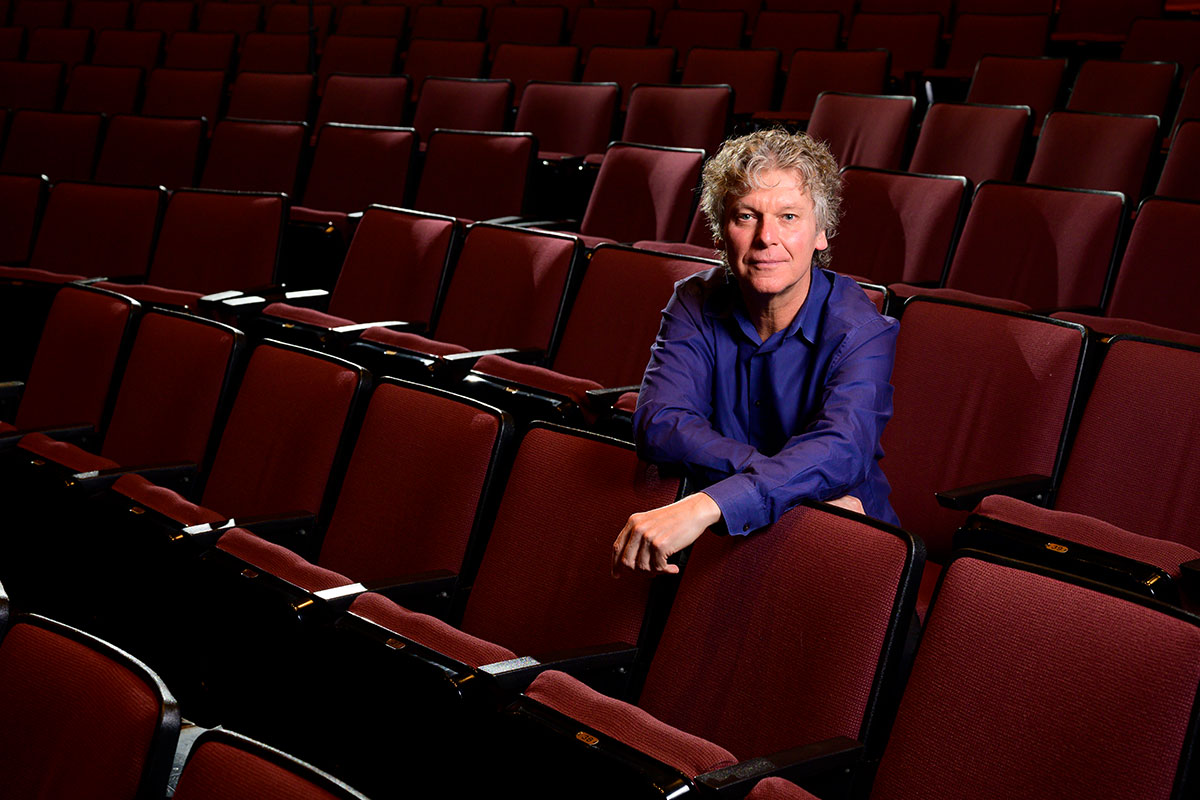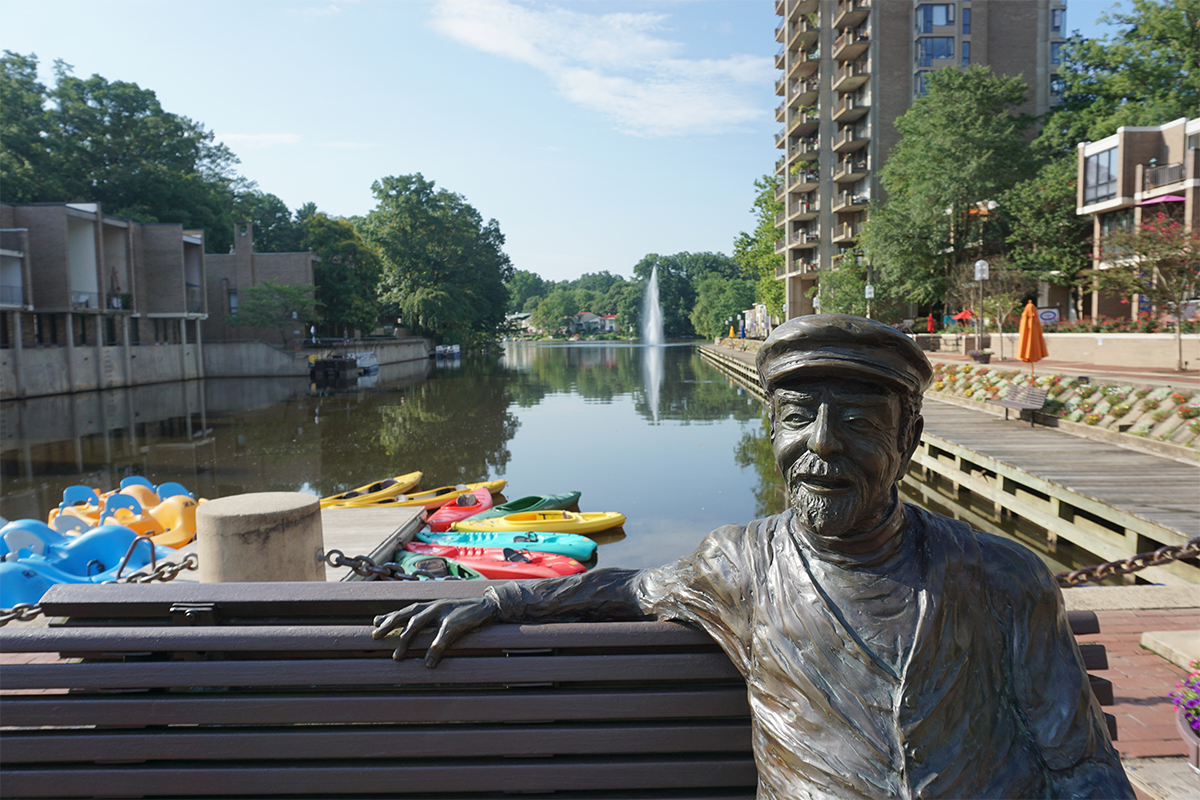In today’s always-on-the-go world, it can be hard to make time to do something for the greater good. Not so for these humanitarians. Below, you’ll find six locals who are leading the way in making our region a better place. Meet our 2019 class of Northern Virginians of the Year.

Chris Zimmerman
A world-class maestro who wants kids to fall in love with classical music
Chris Zimmerman celebrates his 10th anniversary this year as the music director and conductor of the Fairfax Symphony Orchestra. And although he’s known for leading one of the region’s most outstanding ensembles, he’s equally committed to the orchestra’s education initiatives.
“I’m constantly trying to attract more people to our concerts,” says Zimmerman. “It’s somewhat exciting and frustrating. I don’t want to be proselytizing, but I want to educate audiences to the enjoyment of classical music, including contemporary music, enhancing the education initiatives to bring music to thousands of students across Fairfax County.”
Education has been part of the Fairfax Symphony’s mission since its founding in 1975—and the FSO has partnered with Fairfax County Public Schools for more than 40 years. “We have some of our musicians play with student orchestras, so we’ll send a violinist, a violist, a bass player out to sit in their rehearsal,” says Zimmerman. “One reason we focus on educational activities is it’s a way to attract the attention of corporate potential funders, by saying, ‘This is a cause worth being behind.’”
Another program invites student musicians to sit side-by-side with the professional musicians. The most recent concert, in April, had 19 students performing The Planets by Gustav Holst. “They must be [musically] educated and living in Fairfax County to participate in a competitive audition,” says Zimmerman of the competitive student selection process.
Still another project that’s gaining popularity is having “youngsters from an elementary school listen to music and be inspired to paint a piece of art,” shares Zimmerman. “They’re displayed and I’m amazed at the level of the artwork.”
Zimmerman believes that music is “vital to life” and his constant goal is to “maintain and develop a wide range of music, from the Bs (Johann Sebastian Bach, Ludwig von Beethoven and Johannes Brahms) to modern music,” he explains. “People used to resist a little bit, but we’re trying to attract people who don’t necessarily like classical music. We’re not trying to compromise, we’re trying to widen the diet.”
The Falls Church resident grew up in England (thus the British accent) where “opera boomed through the speakers at home and it rubbed off on me. I started playing the piano at 8, which is old [for England]. I was 12 when I started playing the violin. My son is on the brink of becoming a professional violinist,” he says proudly.
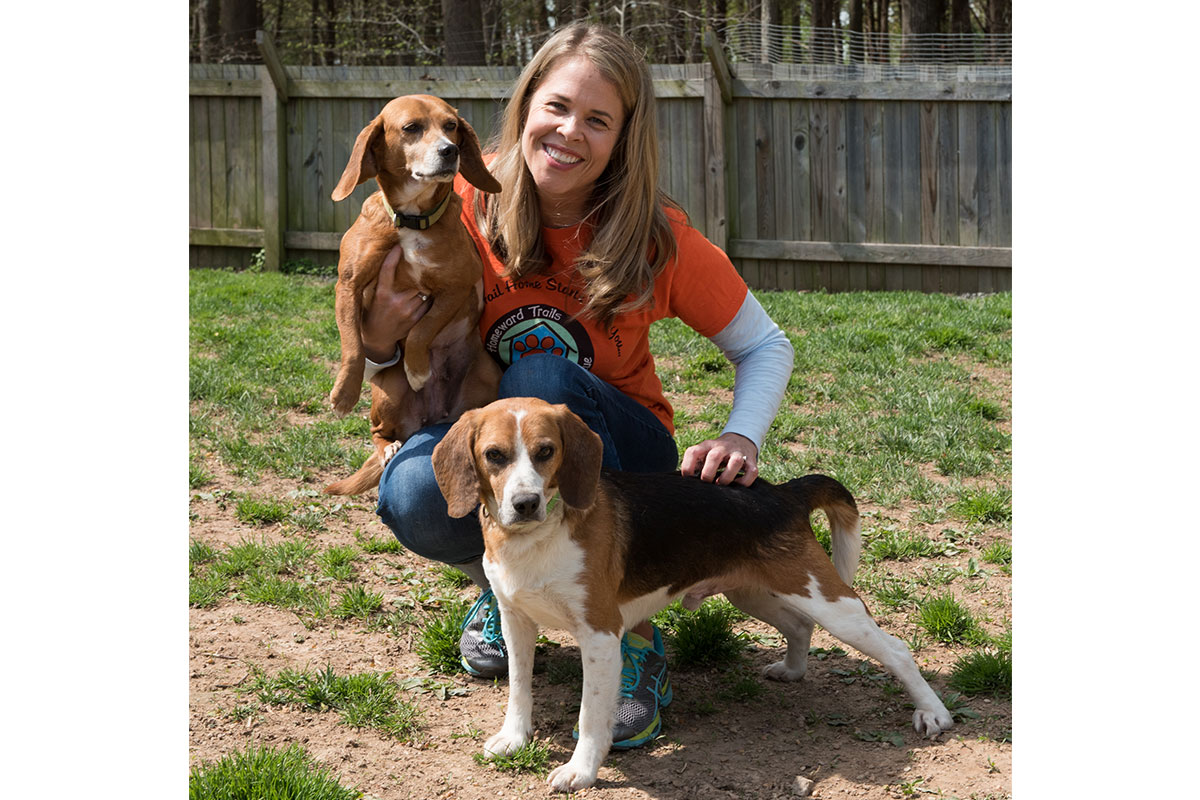
Sue Bell
An animal lover on a mission to create a better life for abandoned pets
Afayette County, West Virginia, vacation in December 2001 changed the lives of Sue Bell, her husband, thousands of dogs and cats and their adoptive parents. That’s when they came across a local animal shelter that was operating out of a small trailer because a flood had taken their facilities—and the lives of more than 50 dogs.
Bell says, “My greatest passion is animals.” Which explains why—when she came upon that trailer—she rescued three dogs and found forever homes for them. Bell made more 12-hour round trips to the shelter to rescue more dogs from certain euthanasia. Her goal, which she met, was to save 50 animals to equal the number that lost their lives.
“I was in the deep end before I knew it,” says Bell. Her nonprofit, Homeward Trails, came from that experience. “We now have five full-time staff people, 20 part-time people and 750 volunteers.”
The majority of the animals are rescued from the mid-Atlantic area, but she also went to Puerto Rico after thousands of cats and dogs were abandoned in the wake of Hurricane Maria. Homeward Trails has also rescued dogs from Thailand that would have been sent to meat production facilities.
Of the 400 rescue shelters in Virginia, Homeward Trails was ranked No. 10 for animals by the Virginia Federation of Humane Societies in 2018, although they are far from the 10th largest shelter in the state. “We could not be at 10 without the doctors and volunteers and donors; it’s a large village of people,” says Bell.
It’s not just finding homes for pets in need. Bell, an Arlington resident, is committed to connecting animals for the greater good. “We’ve partnered with ASPAN (Arlington Street People Assistance Network) to bring animals to visit with homeless clients to brighten their days and Doorways for Women and Families to promote awareness around domestic violence. We lobbied the Virginia legislature because victims of domestic abuse will not leave the abusive situation if the abuser threatens the family pet. And, we bring pets to local colleges during final exams to help with the stress,” says Bell.
“With animal rescue, I’ve learned a lot of bad things,” she says. “But the vast majority of people want to do right by their animals. When you help animals, you’re helping the people who care about them.”
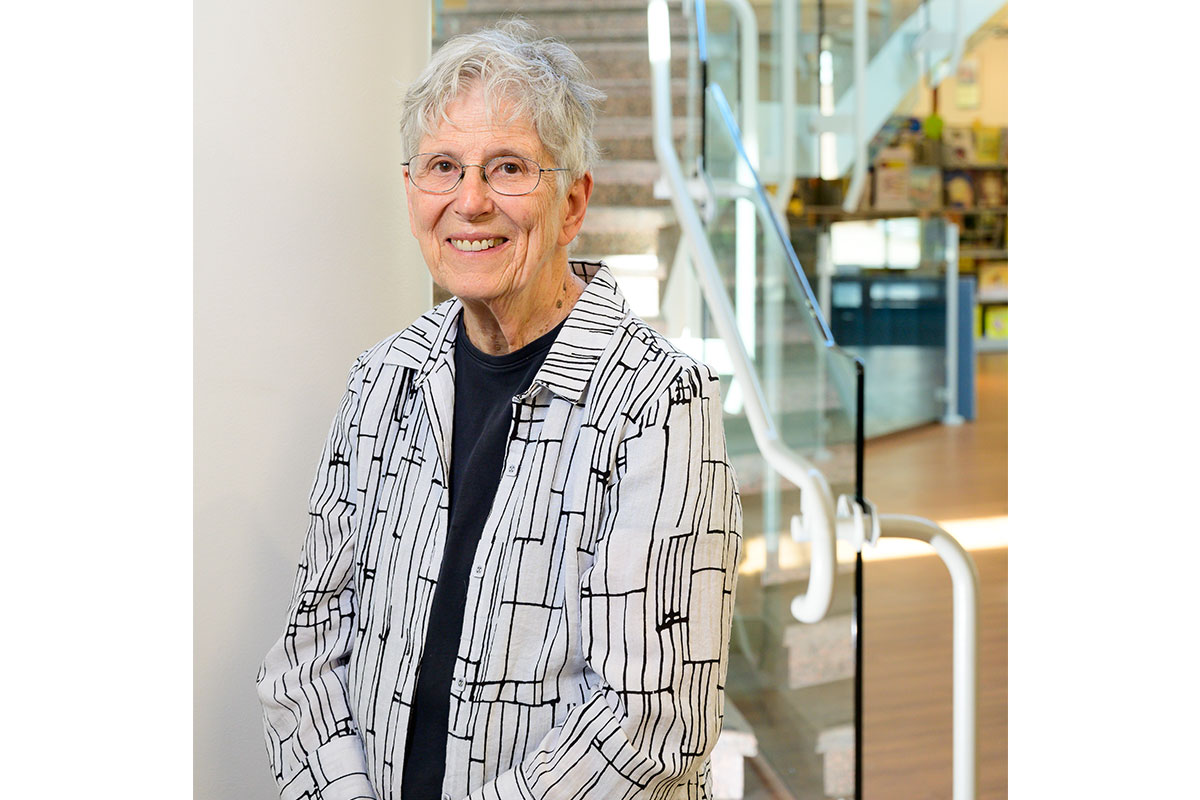
Marty Swaim
An Arlington teacher challenging systemic racism in schools
Martha (Marty) Swaim became interested in the issue of racism and how it impacts testing scores when she served for four years on the Washington, DC school board. It continued when she moved to Arlington and taught social studies in middle and high school from 1984 to 2001.
“Why are some children, primarily students of color, below grade level?” she says she wanted to know. “These students didn’t have disabilities, and the basic reason is racism. It’s not intended; it’s part of the whole society and bred in our reptilian brain.”
“That led me to look for ways how racism works,” explains Swaim. “Over the years, I developed activities and content to really move people from understanding in their heads to their hearts.”
Swain co-founded Challenging Racism in 2004. The nonprofit hosts year-long workshops to teach people in Arlington, as well as other local school districts, about issues surrounding race.
The goal of the seminars, led by Swaim and a team of trained facilitators, is to ultimately eliminate systemic racism in order to build an equitable society. Swaim has spent decades working to reduce the achievement gap and to bring meaningful, effective educational programs to Northern Virginia.
When she first launched Challenging Racism, Swaim had to make phone calls and ask personally for people to attend. Now, 15 years later, she keeps waitlists for the workshops.
“Teaching our kids compassion is so much more than just telling them to ‘be nice,’” says Swaim. “As technology advances, there are countless new opportunities to bring diversity and inclusivity to otherwise homogenous classroom spaces and foster meaningful connections between students.”
Swaim’s particularly proud that when Ford’s Theatre in DC recently presented Reginald Rose’s Twelve Angry Men with a cast of six white men and six black men, they brought Challenging Racism facilitators in to discuss the ideas and methods for talking about racism in juries. They had sessions with educators, many of whom were bringing their students to see the show. “This gave them a lesson plan, discussion questions and character descriptions,” says Swaim.
To her, the greatest accomplishment would be to have all students “on level”—meaning testing scores reflect their true education level without interference from systemic racism—by third grade. It’s a goal, Swaim says, that Challenging Racism is actively working toward for students in Northern Virginia. “It’s possible. People do change. Saying ‘I’m colorblind’ means you are denying part of your reality and how you fit into our social system.”
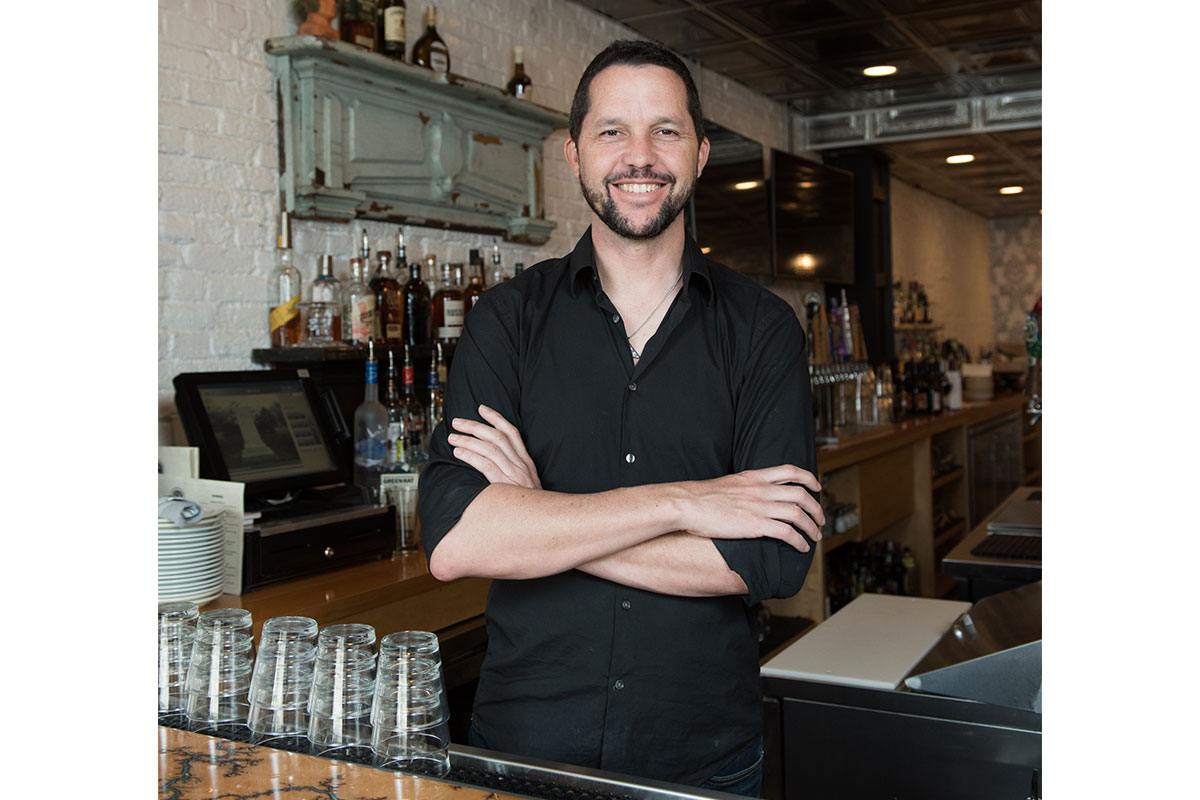
Capt. Kevin Penn
A retired Marine offering comfort to the children of fallen soldiers
Retired Capt. Kevin Penn, an Alexandria resident, was surprised to be honored as the TAPS Military Mentor of the Year. But for anyone who knows Penn, it’s easy to see why. He was honored for his years of volunteer service in the Tragedy Assistance Program for Survivors (TAPS) at its annual gala in March. The Arlington-based national nonprofit works with active and retired members of the armed services on a volunteer basis to give comfort and support to the surviving families of our nation’s fallen heroes.
“TAPS isn’t what I do, it’s what I am,” says Penn. In his acceptance speech at the gala, most of which was dedicated to thanking others for their service, he said, “If what you’re doing requires no sacrifice, then you can do more.”
Penn enlisted in the Marines two months out of high school and became a helicopter mechanic, then a drill instructor for a few years. “There’s 500 Marines who are still on active duty and they’ll never forget me,” says Penn. After studying psychology at California State University San Marcos, he spent the last half of his 20 years and eight days of Marine service as an intelligence officer.
In 2010, he joined TAPS. He regularly volunteers at the annual Good Grief Camp (held in Washington, DC Memorial Day weekend) and whenever TAPS families need him, both locally and across the country. He tells the children that “I will answer the phone anytime they call. If the call isn’t an emergency, I’ll tell them I’ll call back, but I’ll always answer the phone,” he says of offering comfort to those who have lost their parents.
“My TAPS families mean the absolute world to me,” says Penn. “Building memories with these incredible kids is without question the single best thing I do with my time. Devoting my time and energy gives me a lot of satisfaction and fulfillment. They’ve lost the unthinkable.”
Penn regularly shows up at The Light Horse bar in Alexandria where he works for tips, which he donates to TAPS. The bar regularly sponsors TAPS takeovers, and money from each pour is donated to the program.
When Penn is behind the bar, he’s pouring drinks, but also spreading the word about TAPS with his engaging personality.
“I’ve learned that connecting with other people is the most important thing in the world,” he says. “And through that connection, everything is possible.”
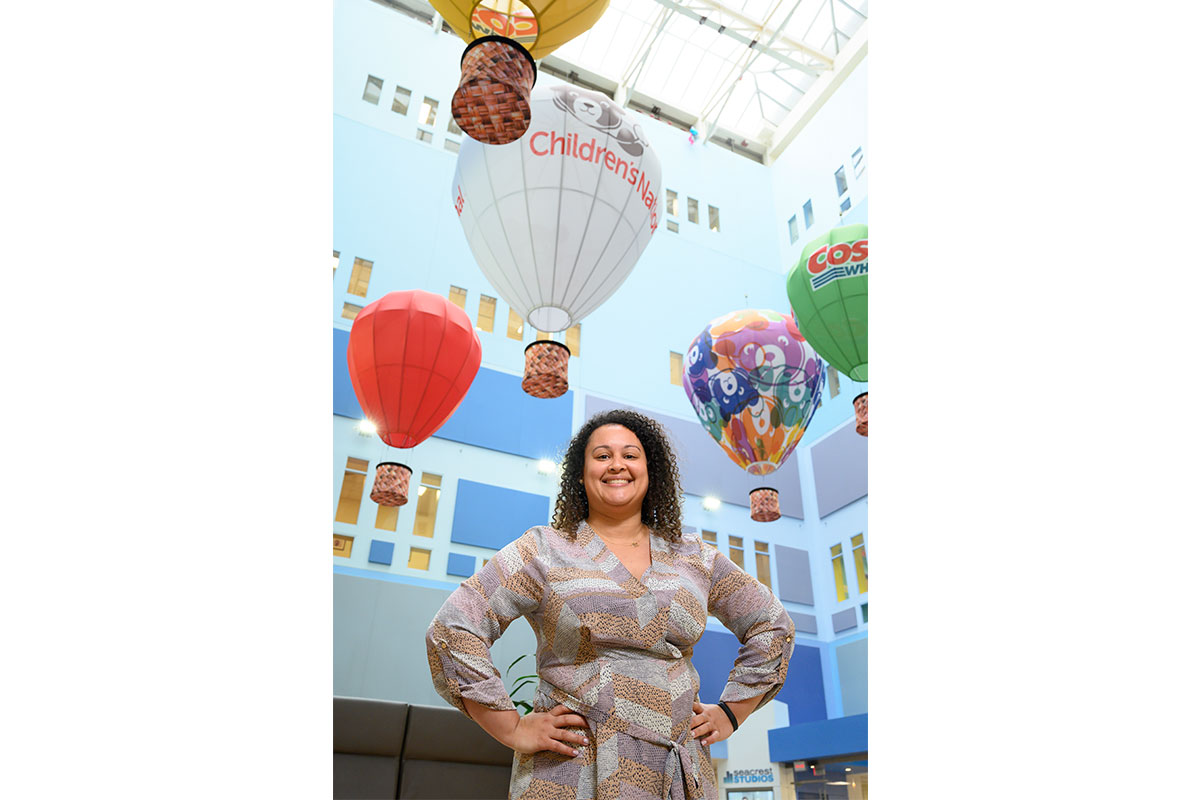
Maria Booker
A nonprofit executive director raising big funds for pediatric cancer research.
Maria Booker, executive director of Chance for Life in Alexandria, has been giving since her college days, when she attended Christopher Newport University. In 1993, she was part her university’s inaugural group of AmeriCorps volunteers who were partnering with the local nonprofit, Alternatives, Inc., in Hampton.
“It grew on me gradually,” says Booker. “I like giving back to the community.”
Following college, she joined the Peace Corps and ended up in Ukraine where, among other things, she helped get a bathroom into a remote school and worked on writing an AIDS awareness grant.
Upon returning to Virginia, she worked for the Capital Area Food Bank and then, last fall, she became part of Chance for Life. Brad and Callie Nierenberg founded the organization in 2005 when his two-year-old goddaughter was diagnosed with cancer. Since then, CFL has raised $6.5 million to support clinical trials at Children’s National Hospital System in DC and Alex’s Lemonade Stand Foundation. Chance for Life’s biggest fundraiser is an annual poker tournament, taste experience and party in March that has grown from an intimate poker fundraiser for 20 people to an annual celebration for 2,000-plus guests.
Booker shares the Neirenbergs’ frustration that 15,000 children are struck by cancer every year, yet only 3% of cancer dollars spent by the federal government goes to pediatric research. Dedicated research is necessary because children’s bodies react differently to cancer and to the existing treatments.
“I can’t imagine telling your children, ‘I can’t make you feel better.’ It’s not like being hungry and giving someone a sandwich,” muses Booker, who also works as a nonproft staff consultant for RedPeg Marketing.
But, with Booker behind organizations like Chance for Life, there’s hope. “Last year we invested $250,000 into a grant for T-cell research and donated another $600,000 this February,” she says. “The T-cells are trained to target and fight cancer cells. One patient, 10-year-old Matilda, has had cancer since she was six months old. After receiving trained T-cells, she was able to move out of hospice care.”
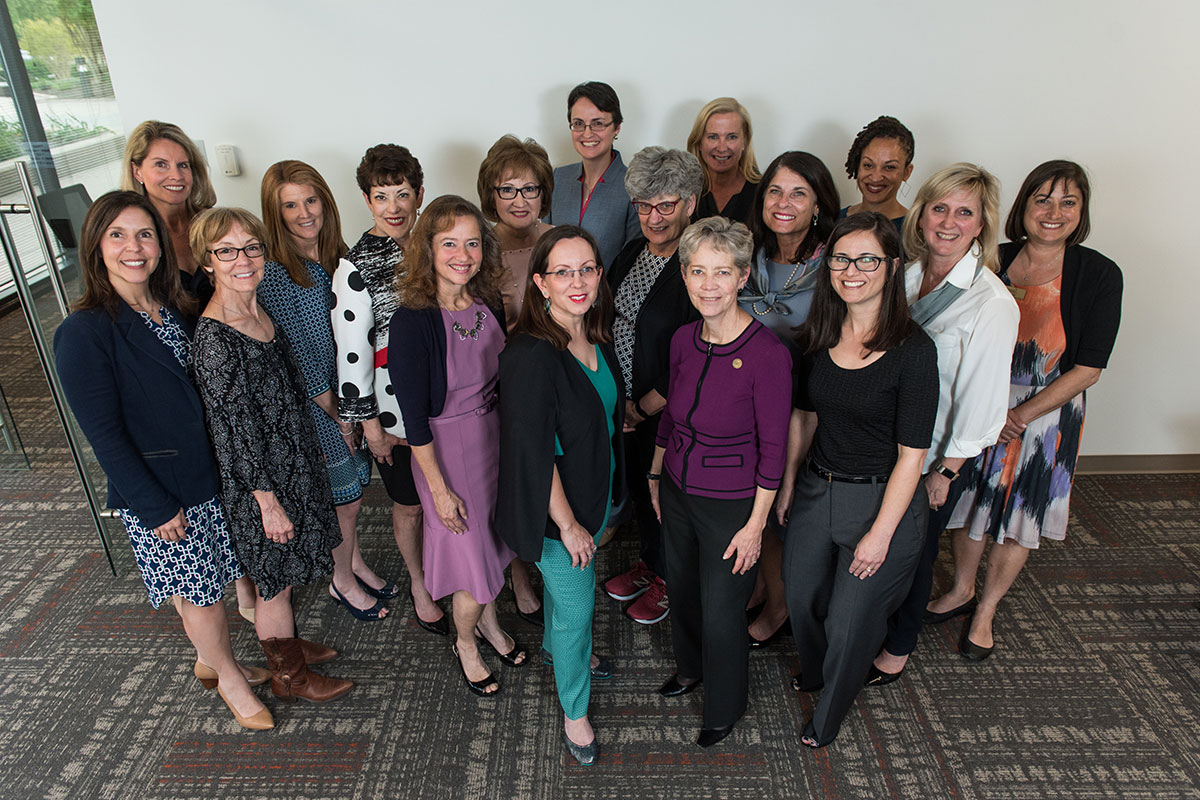
Business Women’s Giving Circle
A community of women supporting the next generation of STEM leaders
The 58 members of the Business Women’s Giving Circle know that investing in girls and young women early on will have a positive impact on them as they grow up and eventually pursue their own careers. That’s the idea behind the philanthropic group, an initiative of The Community Foundation for Northern Virginia. BWGC brings together female CEOs, senior consultants, presidents, principals and other executives to support programs and organizations that promote business innovation, entrepreneurship and empowering opportunities in STEM fields for women and girls.
Launched in 2014, BWGC has so far awarded $230,500 to organizations providing exciting experiences in STEM.
Tanya La Force, founder of Mission Focused Consulting and chair of the Business Women’s Giving Circle, says, “Our portfolio of grantees proves our focus on supporting girls and young women’s journeys towards STEM careers by investing in innovative programs that inspire, teach and/or deliver STEM career-readiness skills.”
To date, the group’s monetary support has helped more than 2,100 girls and young women. These include programs for young girls who never thought they could be good at math, to technical certification programs that prepare young women to enter careers in technology. Like any successful business woman, the group looks for ROI on the groups they choose to support—in the form of demonstrably putting the girls and young women on the right path.
“For example, SHINE for Girls saw great increases in math scores by teaching algebra through dance to at-risk girls” in middle school, including at its chapter in the DC region, says LaForce. With support from the Business Women’s Giving Circle, the organization reported an increase of 147% in math test scores for the girls who participated in the program in 2016, and over 300% in 2017.
Says LaForce, “It takes a village. So, we are honored to support more girls and young women on this journey.”
This post originally appeared in our June 2019 issue. To stay up to date with Northern Virginia, subscribe to our newsletters.

